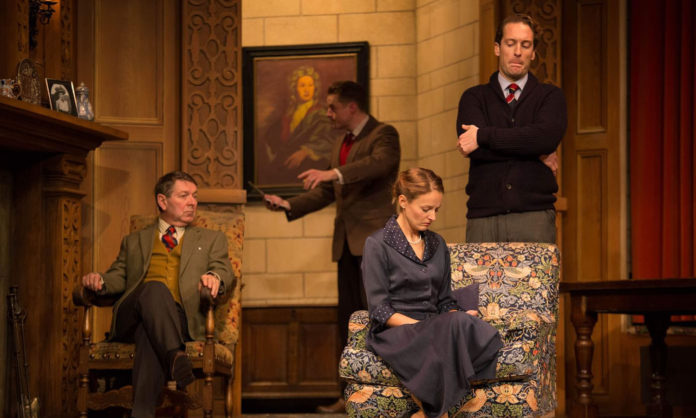Some of our favorite mysteries are set in the theatrical world and murder is frequently a topic of playwrights. What’s the connection? In an article for CrimeReads, Elly Griffiths suggests the two seemingly different forms have a lot more in common than you think.
“Why is there such a link between crime fiction and the stage? Why are so many mysteries set in the theatrical world?” Griffiths asks. Writer Simon Brett told Griffiths that he likes a theatrical setting because each new production creates a new environment with a new mix of characters. “A theatre is a mini-world, each production a mini-life,” Griffiths says. “And, in a cast, you often have a microcosm of society: young and old, rich and poor, leading ladies and voiceless extras.”
I have to declare an interest here. My grandfather, Dennis Lawes, was an actor and his life as a touring Vaudeville entertainer is the basis for my Brighton mysteries. Grandad was on a different playbill every week, moving from town to town, staying in dubious digs. The peripatetic nature of actors makes them ideal sleuths – or villains. This is particularly true if you set your action in the past. Rory Clements writes an excellent historical series about John Shakespeare, William’s fictional actor brother. William was an actor too, of course, and one of the parts we know he played was the ghost in Hamlet. Charles Paris gets this part too in A Decent Interval. Shakespeare knew all about acting. I love Hamlet’s injunction to the clowns to ‘speak no more than is set down for them.’ Obviously Will Kemp and co got sick of Shakespeare’s frankly terrible jokes and started adding gags of their own.
As characters, actors move places and through various social circles. Actors are good at deception and good at spotting it. As a setting, a theater can provide a perfect locked room murder site. A darkened theater can be eerie and many are thought to be haunted. But Griffiths thinks there’s still more. “Reading crime fiction is an active experience and, as in every theatrical performance, the audience makes a difference,” she says.












